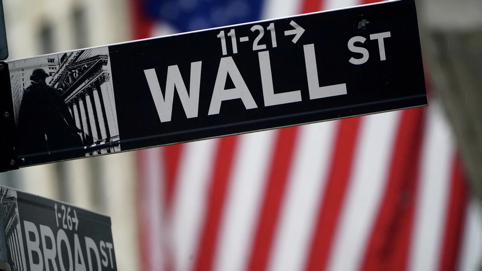Chinese telcos test Biden on Day One with NYSE listing plea
Chinese telcos test Biden on Day One with NYSE listing plea
State-run trio ask US exchange in unified requests to reconsider recent delistings

The decision by the New York Stock Exchange to delist three Chinese telecommunication companies came after dramatic U-turns by the exchange. © Reuters
KENJI KAWASE, Nikkei Asia chief business news correspondent
January 21, 2021 14:19 JST
HONG KONG -- China's three largest telecommunications operators have asked the New York Stock Exchange to reverse its recent decision to have them delisted, and their timing suggests that the state-owned telcos are testing how beholden the administration of U.S. President Joe Biden will be to its predecessor's China policy.
The announcements from China Mobile, China Telecom and China Unicom appeared separately on the website of the Hong Kong Stock Exchange, where they are listed, before trading began on Thursday. Even though the disclosures were made separately, the content of each was nearly identical, indicating that the requests were made in concert.
The companies said in their statements that they have filed written requests to review the NYSE's decision earlier this month to delist them.
In nearly identical wording, the statements say each company has "complied strictly with the laws and regulations, market rules as well as regulatory requirements of its listing venues, and has been operating in accordance with laws and regulations." The only difference is that China Telecom says it has "strictly complied."
The telcos are key listed subsidiaries of China's three so-called central companies, which comprise less than 100 elite state-owned conglomerates controlled directly by the central government's Assets Supervision and Administration Commission, or SASAC. Their parent companies, which carry similar names as the listed subsidiaries, all are 100% owned by SASAC.
Peng Huagang, the secretary-general and a spokesperson of SASAC, stated publicly in Beijing on Tuesday that the commission and the central companies will continue to "uphold socialism with Chinese characteristics under Xi Jinping's new era as a guidance" in 2021.
The carriers' requests followed a sanction list against U.S. government officials issued by the Chinese Foreign Ministry in Beijing early Thursday, just as Biden took the oath of office. The ministry named 28 individuals, including former Secretary of State Mike Pompeo, who it said have "severely infringed on Chinese sovereignty."
The individuals, along with their family members, are now banned from entering China, including Hong Kong and Macao, while companies and organizations affiliated with them are restricted from making contact or doing business with China. The statement was short on details, and it is not clear how far those family members and affiliated entities extend.
The decision to delist the three telcos came after dramatic U-turns by the NYSE, which eventually decided to go ahead with the action; the delistings took effect on Jan. 11. The call to delist was once reversed, only to be reinforced days later. Trading in the shares is now suspended.
The delistings were based on the interpretation of an executive order issued in November by then-President Donald Trump, barring American individuals from investing in publicly traded companies that are deemed to be connected with the Chinese military.
In another test for Biden and the NYSE, China's largest e-cigarette maker, RLX Technology, will price its initial public offering later today, according to a person familiar with the deal. The company, which is backed by the Chinese arm of U.S. fund Sequoia Capital, plans to raise as much as $1.2 billion.
The latest developments could be a touchstone for the Biden administration's handling of the China policy laid out by Trump, one many experts see as an overall framework that generally will remain unchanged.
"I am deeply pessimistic about the future of U.S.-China relations," Evan A. Feigenbaum, vice president for studies at the Carnegie Endowment for International Peace, said last week in an online forum with scholars from the University of Virginia and Fudan University in China. Feigenbaum believes the legacy of "securitization of all aspects" will be bequeathed by the Trump administration, with "cheering from both Republicans and Democrats."
"If the theory of the case was that economic integration will mitigate security competition ... actually the reverse has happened," he said. "Not only that security concern is getting worse, but the security is now bleeding back into economics."
The carriers are at the heart of the security debate. "The company will continue to pay close attention to the development of related matters," the three said identically in their separate statements.
- Last:Stock Picks and Ideas for 2021 2021/1/23
- Next:Here’s What’s Behind Today’s Big Tech-Stock Rally 2021/1/21
